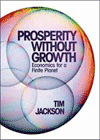Fairness: what role could it play in household level energy reduction?
Overall aims
Through exploring individual’s perceptions of fairness, this study sets out to investigate what role fairness could play in reducing energy consumption at the household level.
Context
Households have been shown to contribute greatly to the UK’s overall greenhouse gas emissions (GHG), meaning that engaging households in energy reduction and energy reduction policies is essential if the UK is going to reach its GHG reduction requirements. A criticism levelled at some of the current policy proposals, aimed at tackling household energy consumption, is that the public views them as ‘un-fair’. The perception of these policies as ‘un-fair’ contributes to low levels of public acceptability and a reduced desire to engage or comply with these policies. Research into policy proposals has suggested that ‘fairness’ will play a significant role in public acceptance and contribute to the success of future policies.
The perception of ‘fairness’ in relation to an issue or policy has been shown to have important implications, resulting in increased levels of compliance and acceptability. However little consideration has been given to what is ‘fair’ or ‘perceived to be fair’ by individual households within the context of reducing household energy consumption.
Research Questions & Methods
The study has conducted a series of interviews on a sample of 30 households over the course of a year in which the households attempted to reduce their household footprints. Two carbon footprints, one to establish the household’s historical GHG emissions for the previous two years, and one to establish their emissions over the duration of the study. These were conducted using the RESOLVE Carbon Home Audit Tool (CHAT). This gave a quantifiable insight into the household’s actual energy use, high usage areas and any achieved reductions.
Alongside this, two interviews were conducted with the households, the first explored reasons for energy consumption, reactions to their carbon footprints and issues surrounding setting a ‘fair’ reduction target. The second interview explores the household’s reduction achievements and their experience of making energy reductions in the home. Households were also questioned about their own perception of the ‘fairness’ of their energy reduction experiences and how ‘fairness’ affects them.
Potential Implications and Outcomes
The research hopes to identify what individual’s perceive as fair within the context of household level energy reduction, and how participating in energy reduction strategies with differing levels of perceived fairness affects the levels of energy reduction achieved by the households. The findings from this study will be used to look at the construction of energy reduction policy and aims to make recommendations that will enhance the public acceptability of household energy reduction policies.
Output
Kukla, C 2011. Lost in Transition – household approaches to fairness in carbon reduction. Presented at the RESOLVE Conference: Living Sustainably: values policies and practices. London, 15 June 2011.





